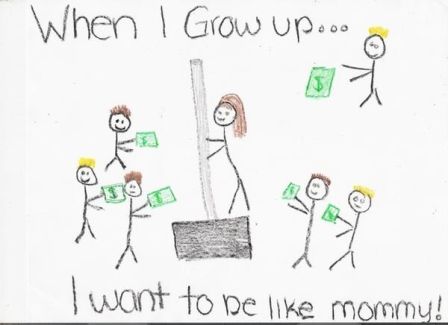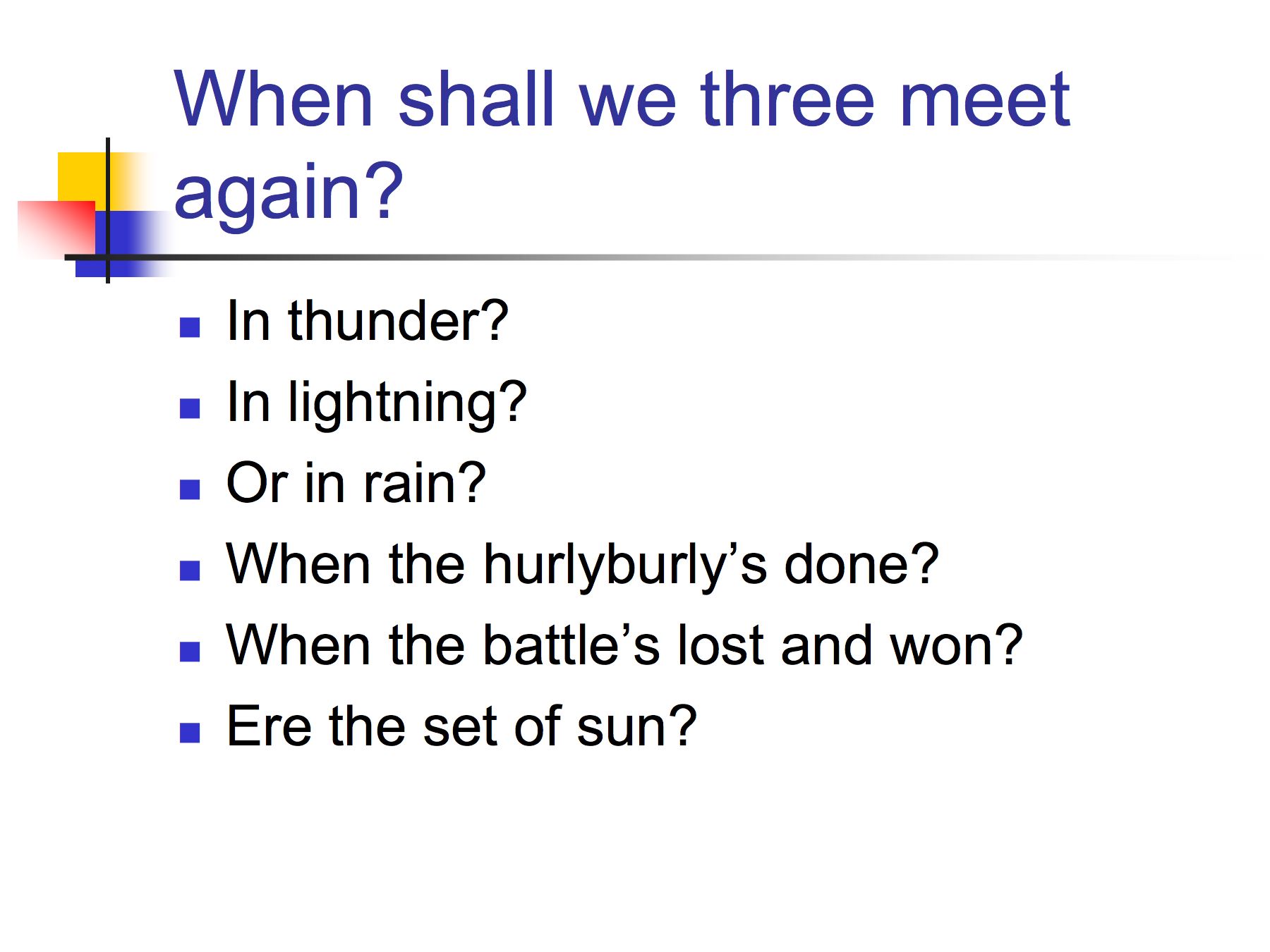Shakespeare Sunday
Sunday, March 22nd, 2009I’d like to start a new weekly feature where I discuss the teaching of Shakespeare. I know – that’s the last thing you’d expect from this blog – but let’s give it a try and see how it goes. Over the next few months, I’m planning to teach The Merchant of Venice, Othello, and Hamlet to different eighth-grade classes, plus I’ll be doing Macbeth and Shakespeare in general with my graduate students, so I should have a lot to share over the next few months.
This week, I began working with an eighth-grade class on The Merchant of Venice. These students will be creating a video (similar to the Cymbeline video the same teacher’s class created last year). I came in to give students an introduction to the play. I happen to be working with the same students in their Social Studies class on our Civil Rights unit, and I’m looking to make cross-curricular connections, so we began by looking at Shylock’s speech from Act I, Scene iii:
Signior Antonio, many a time and oft
In the Rialto you have rated me
About my moneys and my usances:
Still have I borne it with a patient shrug,
For sufferance is the badge of all our tribe.
You call me misbeliever, cut-throat dog,
And spet upon my Jewish gaberdine,
And all for use of that which is mine own.
Well then, it now appears you need my help:
Go to then; you come to me, and you say,
‘Shylock, we would have moneys:’ you say so;
You, that did void your rheum upon my beard,
And foot me as you spurn a stranger cur
Over your threshold: moneys is your suit.
What should I say to you? Should I not say,
‘Hath a dog money? Is it possible
A cur can lend three thousand ducats?’ or
Shall I bend low, and in a bondman’s key,
With bated breath, and whispering humbleness,
Say this:—
‘Fair sir, you spet on me on Wednesday last;
You spurn’d me such a day; another time
You call’d me dog; and for these courtesies
I’ll lend you thus much moneys?’
I asked the students to interpret the speech, and they seemed to have no trouble at all understanding what Shylock was saying. We went through the rest of the scene and the students understood the deal being made and the motivations behind it on both sides. When we got to the last lines of the scene…
Come on: in this there can be no dismay;
My ships come home a month before the day.
…the students understood that Antonio’s ships would not be coming in. The teacher made a nice connection to the current financial crisis that caught everyone by surprise. We also covered Portia’s father’s challenge by reading Morocco’s examination of the three caskets in the next scene. Before we looked at Morocco’s choice, the students predicted that the lead casket was the correct one, because it’s always the most unlikely one. One student (who “hates Shakespeare”) explained that Portia’s father didn’t want someone for his daughter who was selfish or greedy. I’m really going to enjoy working with this class.
We showed them the Cymbeline video and invited them to start thinking about what they might want to do with The Merchant of Venice. And now that the students’ interest is piqued, the teacher is going to go back and cover the characters and themes before the students start reading the play.
More next week!

